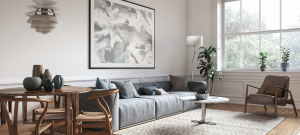Questions to ask when buying a house
It is common practice to carry out extensive research and investigation when making any kind of serious decision.
Home Emergency Insurance for £130
- ✓ Covered up to £1,000 per emergency
- ✓ £250 for overnight accomodation
- ✓ Call out, labour & parts included
Buying a house is significant and important, and prior to buying a property and committing to a considerable financial investment, you will want to be confident that you have made the right decision.
Through the process of a property viewing and through conversation with the seller or their representative (e.g. agent), you have the opportunity to find out as much as you possibly can about the property and dig deeper to maybe uncover any inconvenient truths or issues with the property.
Of course, no property will be perfect in all aspects. However, by setting out a list of questions to ask the owner or agent you will avoid making a bad decision. In asking the right questions you will come to find that the property is either the right fit for you, or on the contrary, an unreasonable purchase.
We have set out below 8 key questions you should considering asking when buying a house, in addition to a compilation of more specific and niche questions that you can use:

“Why are you selling the property?”
The motivation behind the owner’s decision to sell the property will obviously vary on an individual basis. However, the answer to this question could potentially give you an insight into the reasons behind such a decision which could either deter or incentivise your purchase.
“How long has the property been on the market, has there been any offers?”
In asking these questions, you will know before even viewing the property, the level of demand for it. This will enable you to evaluate the quality of the house, and whether the price point is a reasonable one.
If the property has been on the market for a considerable time and has received no offers, this could be a sign that the property price is not justified and in fact unreasonable, or that there are some underlying issues with the property itself which will require you to examine and inspect it thoroughly.
“How long have you owned the property?”
Finding out how long the current owners (and if possible previous owners) have lived at the property is very useful information. A succession of different owners in a limited timeframe could often be a warning of a less than ideal property.
A rapid turnover of owners could be a sign of a troublesome neighbourhood, complicated neighbours or issues with the infrastructure of the property itself. In finding out the time that the owner has lived at the property, you could begin to unearth some hidden issues.
“Has there been any work carried out on the property?”
Finding out about any work or building extensions carried out at the property can further help you to evaluate the nature of the property. Work could have been carried out at the property in order to increase the value of the home, or to improve the living conditions and desirability for the property in preparation for the sale.

Alternatively, recent repairs could suggest problems with the property. In finding out if there has been work carried out and more importantly the reason for it, you will be able to get a better understanding of your potential purchase.
“What are the area and neighbours like?”
If you are unfamiliar with a certain area, it can be helpful to either do some of your own research, or alternatively directly ask the owner. This small yet crucial bit of information can make the difference between a successful and happy purchase, or on the other hand a cause of much trouble and nuisance for you.
Confrontational or problematic neighbours may seem like a virtually non-existent issue by those that have never encountered them, however these can turn your living experience into an absolute misery.
In addition, you could explore the area yourself and make a balanced judgement considering the state of the neighbours’ property (e.g. if it is well kept) and visiting the property and the surrounding area at different times of the day to see if there are any inconveniences.

Finally, in addition to the general enquiries regarding the area, do not shy away from asking questions about parking, rubbish collection, schools, noise, and congestion.
What are the local amenities and transport links like?
Once again you may have prior knowledge of these factors but if not, it can be helpful to get a first-person insight directly from the owner regarding transport links, pubs and restaurants, leisure activities, sports facilities and shops in the area. Do attempt to be specific with your questions to avoid generic replies and generalisations.
What are the running costs for the property?
Find out directly from your owner the running costs of the property to get the best understanding of the living costs. This would allow you to consider your expenses and budget accordingly, to ultimately decide whether you are financially prepared to live in the home. The costs will include council tax, utility bills as well as general running costs such as minor repairs to the property.
Is the owner open to offers?
The overarching factor of a property purchase is the price and although you are presented with a set figure, you should always ask, unless completely satisfied with the price point, whether the owner would consider a lower asking price. The varying factors to the owner’s decision to sell the property mean that you may have leverage in negotiating the price point. In asking this, you may know whether a price reduction is on the cards.
If you are looking to buy a flat rather than a house, there are some additional questions that will be worth asking. Find out whether the flat is leasehold or freehold, and if leasehold then how many years are left on the lease.

Furthermore, enquire as to the condition of communal shared areas of the block of flats, and if there are any outdoor spaces. It could also be useful to know whether there is a residents’ committee and how to make your opinions heard and taken into consideration.
In addition to these key questions, we can consider a number of smaller, yet equally significant questions to ask when buying a property. You can for instance inquire about the general state of the house:
- Do the light switches work?
- Is the flooring in good condition?
- Is the property susceptible to damp or mould formation?
- Are there any cracks in the walls or structural issues?
- Is there any storage space?
- What are the windows and insulation like?
- Are there any recurring plumbing or electricity issues?
- Which direction does the house face?
All these questions may seem quite small in scope, however when put together they encompass the entirety of the property and it’s in your best interest to get as much useful information as possible to make the most informed decision possible regarding the purchase of the property.